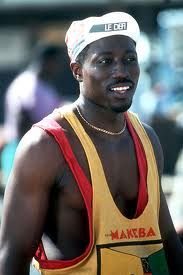Tax Court Settles Case Involving Professional Golfer; Offers Lesson in Sourcing of Endorsement Income
 Two-time major winner Retief Goosen, affectionately known as “Goose” or “Iceman” in golfing circles, found his way onto the Tax Court docket today. Goosen, a resident of the UK, continues to golf on both the European and the PGA Tour, subjecting him to US tax on the income earned and sourced to the United States. At issue in Goosen v. Commissioner, 136 T.C. 27 (6.9.2011), was not the golfer’s winnings on the tour, but rather whether Goosen’s considerable endorsement revenue:
Two-time major winner Retief Goosen, affectionately known as “Goose” or “Iceman” in golfing circles, found his way onto the Tax Court docket today. Goosen, a resident of the UK, continues to golf on both the European and the PGA Tour, subjecting him to US tax on the income earned and sourced to the United States. At issue in Goosen v. Commissioner, 136 T.C. 27 (6.9.2011), was not the golfer’s winnings on the tour, but rather whether Goosen’s considerable endorsement revenue:
1. Constituted personal service income or royalty income for US tax purposes, and
2. Represents income effectively connected with a US trade or business (taxed in the US at graduated rates) or fixed and periodic income (taxed at a flat 30%.)
During the years at issue, Goosen had the following endorsement contracts:
TaylorMade
- Required Goosen to use TaylorMade clubs in all tournaments.
- Goosen was required to make personal appearances and perform product testing.
- To the extent Goosen didn’t play in a minimum amount of tournaments in a year, his compensation would be reduced.
- He received a bonus based on winning certain tournaments and his world ranking.
Izod
- Required Goosen to wear Izod during tournaments.
- Goosen was also required to make two personal appearances per year.
- To the extent Goosen didn’t play in a minimum amount of tournaments in a year, his base compensation would be reduced.
- He received a bonus based on winning certain tournaments and his world ranking.
Titelist
- Required Goosen to play with Titlelist golf balls in tournaments
- Goosen was also required to provide four days of public relations and perform product testing.
- To the extent Goosen didn’t play in a minimum amount of tournaments in a year, his base compensation would be reduced.
- He received a bonus based on winning certain tournaments and his world ranking.
Rolex
- Goosen was not required to wear the watch while golfing.
Upper deck
- Gave Upper Deck right to use Goosen’s likeness on golf cards
EA Sports
- Gave EA Sports the right to use Goosen’s likeness on video game
This was a lengthy case, so rather than go into great detail regarding the respective positions of Goosen and the IRS, I’ll provide a summary of the Tax Court’s holdings, as they provide insight into how the court will analyze worldwide endorsement income earned by a nonresident professional athlete.
TaylorMade, Izod, Titleist:
- The Tax Court found that these companies were paying Goosen both to use his name and likeness and for his performance of services, and as these two items were of equal importance to these companies, the court allocated 50% of the income to personal service income, and 50% to royalty income.
- The portion of the personal service income representing the endorsement income and tournament bonuses were allocated to US sources based on the number of days Goosen played golf in the US over total golf days for the year.
- The portion of the personal service income representing the rankings bonuses were allocated to US sources based on Goosen’s US winnings over total winnings.
- The 50% royalty income portion of the income generated from these companies was allocated 50% to US sourced income.
- All of the personal service income, and the portion of the royalty income deemed to be US sourced was held to represent income effectively connected with a US trade or business, and taxed at graduated rates.
Rolex, Upper Deck, EA Sports:
- The Tax Court held that since no personal services were required of Goosen, these companies were paying solely for the right to use his likeness. All of this endorsement income was treated as royalty income.
- Income received from EA Sports was allocated to US sources based on EA Sports sales of video games within the US as compared to worldwide sales, resulting in an allocation of 70% to US sources.
- Income received from Upper Deck was allocated to US sources based on Upper Deck’s sales of golf cards within the US as compared to worldwide sales, resulting in an allocation of 92% to US sources.
- Income from the Rolex contract was held to be 50% US sourced, similar to the contracts with TaylorMade, Izod and Titleist.
- None of the US sourced royalty income from EA Sports, Upper Deck and Rolex was held to be effectively connected with a US trade or business.
I was surprised at the informal mannter in which the Tax Court “guessed” at several key allocations, including splitting the on-course endorsement income 50/50 between royalty income and personal service income, then again in sourcing the royalty income 50% to the U.S. Both amounts were completely arbitrary, with no quantitative analysis performed.
Will this forgiving approach benefit US nonresidents who wish to source endorsement income outside the US in the future, or will it simply reflect a one-case anomaly?

